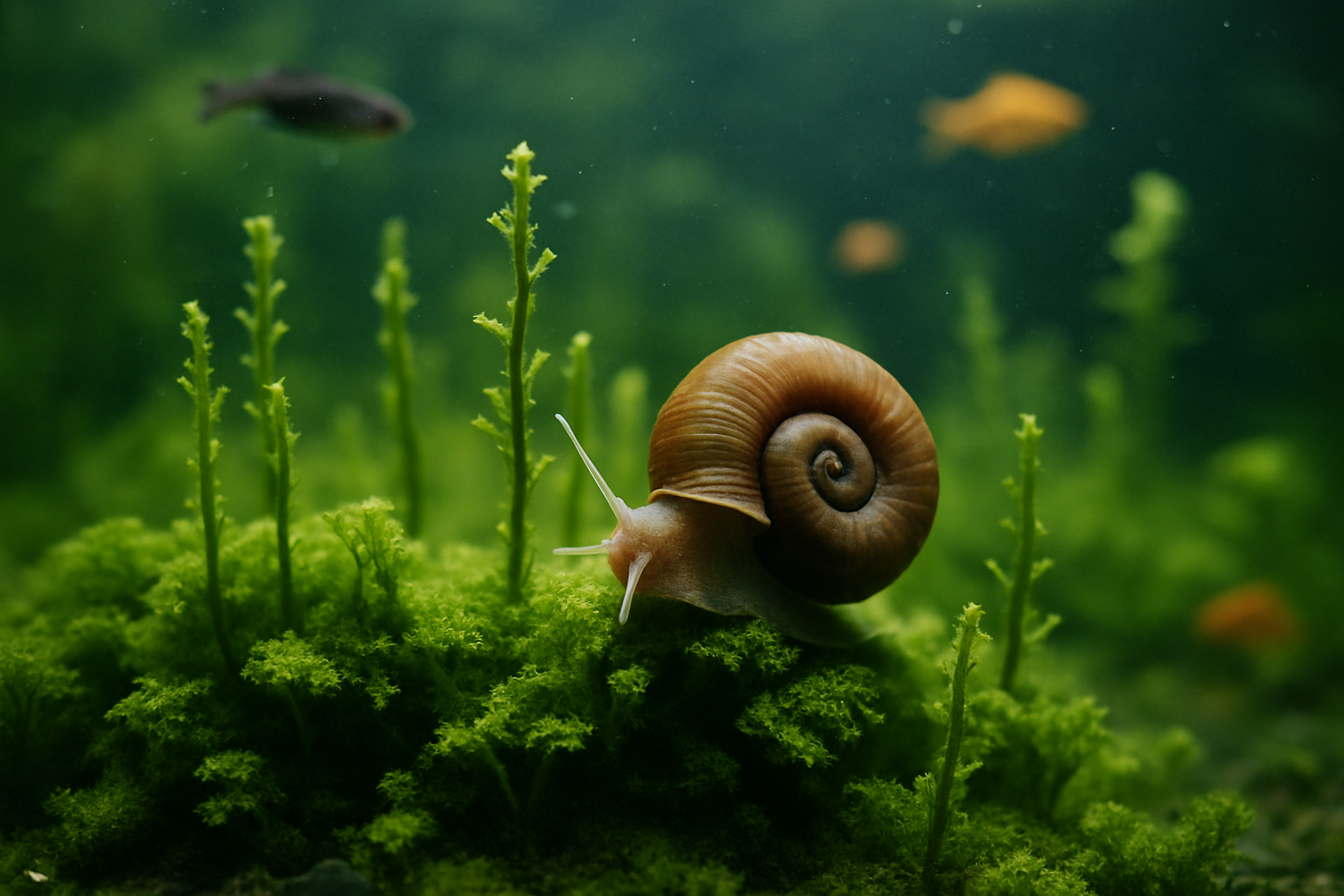Secret Lives of Freshwater Snails: Tiny Ecosystem Engineers
Beneath the surface of tranquil ponds and streams, a fascinating world unfolds. Freshwater snails, often overlooked, play crucial roles in aquatic ecosystems. These small mollusks are not just passive inhabitants; they are dynamic engineers shaping their underwater realms. From water purification to algae control, their impact extends far beyond their diminutive size.

Ancient Lineage and Diverse Adaptations
Freshwater snails boast a remarkable evolutionary history dating back over 500 million years. These resilient mollusks have survived multiple mass extinction events, adapting to changing environments and colonizing diverse aquatic habitats worldwide. From crystal-clear mountain streams to murky swamps, freshwater snails have evolved a variety of shell shapes, sizes, and feeding strategies to thrive in their specific niches.
Some species have developed specialized breathing apparatus to survive in low-oxygen environments, while others have evolved to withstand periods of drought by sealing themselves within their shells. This adaptability has allowed freshwater snails to become integral components of aquatic ecosystems across the globe, from tropical rivers to arctic lakes.
Ecosystem Engineers at Work
Freshwater snails play a vital role in maintaining the health and balance of aquatic ecosystems. As grazers, they help control algae populations, preventing excessive growth that can lead to oxygen depletion and fish die-offs. Their constant foraging activities also help to aerate sediments, promoting nutrient cycling and supporting other aquatic life.
Many species of freshwater snails act as natural water purifiers, filtering out suspended particles and consuming organic matter. This process helps to improve water clarity and quality, benefiting other aquatic organisms and contributing to overall ecosystem health. Some larger snail species even create microhabitats within their shells, providing shelter for smaller aquatic creatures and fostering biodiversity.
Unexpected Intelligence and Social Behavior
Recent studies have revealed surprising cognitive abilities in freshwater snails, challenging long-held assumptions about mollusk intelligence. Researchers have observed problem-solving behaviors, spatial memory, and even rudimentary forms of learning in various snail species. These findings suggest that snails possess more complex neural processes than previously thought, opening new avenues for understanding the evolution of intelligence in invertebrates.
Social interactions among freshwater snails have also garnered attention from scientists. Some species exhibit cooperative behaviors, such as forming protective clusters during breeding seasons or sharing information about food sources through chemical signals. These social dynamics add another layer of complexity to the secret lives of these aquatic mollusks.
Conservation Challenges and Emerging Threats
Despite their ecological importance, many freshwater snail species face significant threats. Habitat destruction, water pollution, and the introduction of invasive species have led to alarming declines in snail populations worldwide. Climate change poses an additional challenge, altering water temperatures and chemistry in ways that can be detrimental to these sensitive creatures.
Conservation efforts are underway to protect endangered freshwater snail species and their habitats. These initiatives often involve habitat restoration, pollution mitigation, and captive breeding programs. However, the cryptic nature of many snail species and limited public awareness present ongoing challenges for conservation biologists working to safeguard these important ecosystem engineers.
Harnessing Snail Power: Innovative Applications
The unique properties of freshwater snails are inspiring innovative applications across various fields. In the realm of biomedicine, researchers are studying snail mucus for its potential antimicrobial and wound-healing properties. Some species produce compounds that show promise in the development of new pharmaceuticals, including potential cancer treatments.
In environmental science, snails are being employed as bioindicators to monitor water quality and assess ecosystem health. Their sensitivity to pollutants and environmental changes makes them valuable tools for early detection of ecological disturbances. Additionally, certain snail species are being explored for their potential in natural water treatment systems, offering eco-friendly alternatives to traditional purification methods.
A World Worth Exploring
The secret lives of freshwater snails reveal a world of complexity and wonder hidden beneath the water’s surface. From their ancient evolutionary history to their crucial roles in ecosystem maintenance, these tiny mollusks offer valuable insights into the intricacies of aquatic life. As we continue to unravel the mysteries of freshwater snails, we gain a deeper appreciation for the delicate balance of nature and the importance of preserving even the smallest creatures in our ecosystems.




